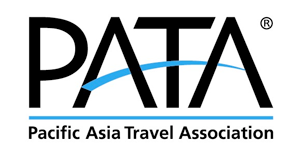The Islamic Tourism Centre (ITC) recently took the opportunity to explore the potential of Sabah as a Muslim tourist market.
At a seminar jointly organised by Institut Pengajian Islam dan Dakwah Sabah (IPDAS) and ITC, discussions were held on Sabah's culture, nature and other assets that enable the state to promote itself as a Muslim-friendly travel destination.
Pre-pandemic, Sabah's tourism industry was thriving, with visitors numbering 4.19 million in 2019. International tourists accounted for 1.47 million of them.
Tourism was the state's third-biggest income-generating industry, supporting more than 80,000 jobs, according to the Sabah Tourism Board in 2021.
With the reopening of the nation's borders on April 1, local tourism stakeholders may wish to look into diversifying products and services to attract lucrative travel markets, like the Muslim tourist. The Muslim tourist market was steadily growing before the Covid-19 pandemic hit. There were 200.3 million Muslim travellers globally, and they spent US$194 billion in 2019.
Now that the industry is restarting, the Muslim-friendly sector can be expected to pick up.
At the seminar, IPDAS director Muhammad Zamri Muhamed Shapek addressed a common misconception about the Middle-Eastern tourists, that they were interested only in visiting luxurious malls.
He said this may not necessarily be true, especially for the millennial Middle Eastern market that is adventure-seeking with a preference for ecotourism, which Sabah is famous for.
Being a geographically diverse state, Sabah has many natural attractions. These lend to its appeal as a destination that has a positive environmental and social impact.
Sabah's nature conservation practices are aligned with the United Nations Sustainable Development Goals. Moreover, sustainability and environmental protection are important aspects of Islam that ultimately benefit the tourism industry.
The Muslim market is geographically diverse and does not exclusively refer to the Middle Eastern market. The scope is broad and it includes the Asean region with its estimated 255 million Muslim residents.
This is where Sabah has an advantage. It is directly accessible to potential visitors from different parts of the world. Residents of neighbouring Singapore can take direct flights to Kota Kinabalu International Airport without having to stop at Kuala Lumpur International Airport.
The people of Brunei and Kalimantan, Indonesia, can even enter the state by land. Ease of travel aside, Sabah's unique population and history are elements that may hold special appeal to global travellers, offering a glimpse of Islam in Borneo.
The deputy director of Academic Quality at the Academic Quality and e- Learning Centre, Universiti Sultan Zainal Abidin, made this point in his presentation.
Associate Professor Dr Berhanuddin Abdullah said the geographical location of a destination has a lot of influence on its civilisation. While there is one Islam, Sabah has unique architecture, communities, customs and history that cannot be found in other Muslim-populated destinations.
The Kota Kinabalu City Mosque, for example, is a hotspot for visitors from Japan and Korea.
Dr Tini Maizura Mohtar from Universiti Malaysia Sabah supported this statement in her session, "Hospitaliti Islam, Cabaran di Malaysia" (Islamic hospitality, its challenges in Malaysia).
She said that tourists taking part in local activities such as trying on local garments and delicacies help to nurture respect between travellers and the host Muslim community.
This is easily achievable in Sabah, home to over 30 indigenous groups, each with its own customs and traditions.
Other key takeaways from the seminar were:
Islamic tourism is no different from conventional tourism. People of all religions and races mainly travel to experience new things or to escape from daily life routines. However, Islamic tourism is undertaken in a way that enables Muslims to fulfil faith-based needs.
Islamic tourism is an ecosystem in which the Muslim-friendly tourism and hospitality (MFTH) sector and halal tourism exist. MFTH is a branding that ITC encourages Malaysia's tourism industry players to use as a marketing tool.
With a 1.8 billion global Muslim population, 1.1 billion in the Organisation of Islamic Cooperation member countries and 350 million in other countries across continents, the Muslim market is huge and is only expected to grow.
Malaysia has ranked number one in the Muslim-friendly sector in the State of Global Islamic Economy Report by DinarStandard since 2014 and in the Global Muslim Travel Index by CrescentRating since 2015.
Post-pandemic, travellers are becoming more cautious about health and safety. They need standards as an assurance for safe travels, which is why ITC's Muslim- Friendly Accommodation Recognition (MFAR) and Muslim-Friendly Tourist Guide (MFTG) are becoming increasingly important.
Currently, there are 53 MFAR-recognised hotels nationwide, two of them in Sabah. There are also 62 MFTGs in Malaysia. One is based in Sabah.
No doubt, Islamic tourism is gaining in momentum. Even destinations without a Muslim-majority population such as Australia, China, Japan, Singapore, South Korea and Taiwan see the potential.
The situation requires leaders to be visionary and take advantage of the strong market demand for Muslim products and services.
In line with this, the upcoming launch of IPDAS' Diploma in Islamic Tourism programme (Diploma Pelancongan Islam) is welcome news. ITC fully supports this venture as a way to nurture future leaders in the Islamic tourism space.
- TAGS / KEYWORDS:





.png)


















.jpg)




.png)











